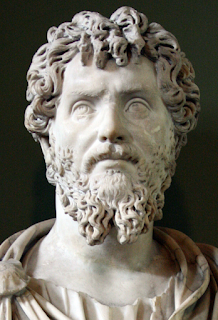 | The Bar Kokhba revolt was a rebellion of the Jews of Judea, led by Simon bar Kokhba, against the Romans and fought circa 132–136 CE. It was the last of three major Jewish–Roman wars. Although Jewish Christians hailed Jesus as the Messiah and did not support Bar Kokhba, they were barred from Jerusalem along with the Jews. The war helped differentiate Christianity as a religion distinct from Judaism. |  A cluster of papyrus containing Bar Kokhba's orders found in the Judean desert. |
 | In 132, a revolt led by Bar Kokhba spread from Modi'in across the country, cutting off the Roman garrison in Jerusalem. The outbreak took the Romans by surprise. Hadrian called his general Sextus Julius Severus from Britain, and troops were brought from as far as the Danube. The struggle lasted for three years before it was brutally crushed in the summer of 135 AD. After losing Jerusalem, Bar Kokhba and the remnants of his army withdrew to the fortress of Betar, which also came under siege. Betar was the site of the last stand of the rebels in their struggle against Roman rule in Judea. The Talmud says that the numbers slain were enormous, that Romans "went on killing until their horses were submerged in blood to their nostrils" |  |
 | In 2009 the largest cache of coins ever found from the Bar-Kokhba revolt was found in a cave. Most of the coins are overstruck as rebels' coins on top of Roman. |  |
 | The new imprints show Jewish images and words (for example: the facade of the Temple in Jerusalem and the slogan "for the freedom of Jerusalem"). Other coins that were found, of gold, silver and bronze, are original Roman coins of the period minted elsewhere in the Roman Empire. |  |

No comments:
Post a Comment